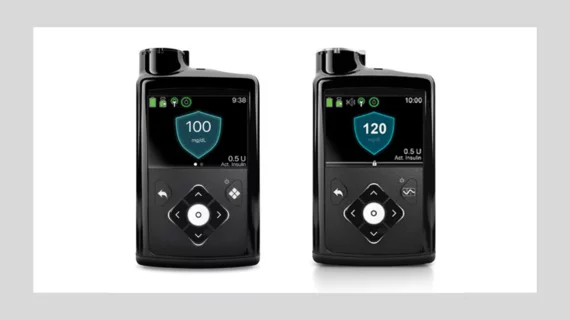FDA rules Medtronic’s insulin pump issues a Class I recall due to safety risks
Medtronic is recalling several models of its MiniMed insulin pumps due to significant safety concerns related to the batteries unexpectedly running out.
The U.S. Food and Drug Administration (FDA) has ruled that this is a Class I recall. This means using the devices without taking caution as recommended is associated with a heightened risk of serious injury or death.
Medtronic first detailed these issues back in July, sending out a safety alert to its customers. Now that the FDA has ruled this as a Class I recall—click here for more information from the agency—Medtronic has issued a new urgent medical device correction highlighting the problem and telling customers what they need to do going forward to ensure the safety of their patients.
Even minimal impact creates potential for health risks
This Class I recall covers the 600 and 700 series MiniMed insulin pumps. If these devices are ever dropped or bumped, Medtronic explained in its latest notice, there is reason to believe the battery life could be shortened due to “damage to internal electrical components.” Even small amounts of physical impact can be enough to create problems.
One potential risk tied to these ongoing issues is the fact that they can cause programmed battery alerts to be triggered at the wrong time.
“This may result in the pump stopping insulin delivery significantly sooner than usually expected and could lead to health risks like hyperglycemia or diabetic ketoacidosis, potentially requiring medical intervention,” according to a statement. “Most recently, Medtronic has received 170 reports of hyperglycemia >400mg/dL and 11 reports of diabetic ketoacidosis from January 2023 to September 2024 in the U.S. potentially related to this issue.”
Customers are not being asked to return their devices
Medtronic is not requiring customers to return their MiniMed insulin pumps. Instead, the company has recommended that extra batteries always be kept on hand and customers should reach out to Medtronic if any “significant decreases in battery life” are identified.
“Our team is here 24 hours a day, seven days a week to help if you experience battery depletion or any other issue with your pump,” Robert Vigersky, MD, chief medical officer of Medtronic Diabetes, said in the statement. “Patient safety is our priority, as is continuity of therapy, which is why we made the decision to voluntarily notify patients and will replace pumps when needed.”
Click here for Medtronic’s latest message related to these incidents. Updated information from the FDA is available here, here and here.

